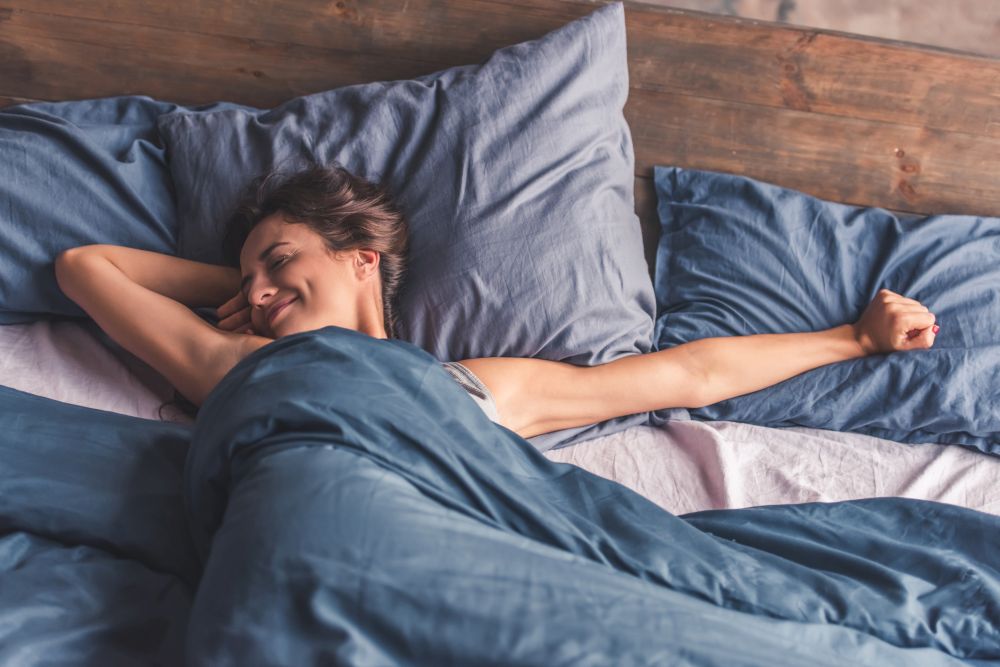10 ways to improve your sleep
A better night's sleep can improve your running performance. Here are a few tips to help you catch more zzz's

Getting consistent, good-quality sleep is one of the simplest ways to improve running performance, but for many runners, getting a good night’s sleep is as elusive as qualifying for the Boston Marathon. If you’re having trouble getting enough good quality sleep at night, check out these 10 tips to help you get a little more shut-eye.

Increase bright light exposure during the day
Natural sunlight and bright light during the day help keep your circadian rhythms, otherwise known as your natural body clock, healthy. In fact, studies have shown that exposing older adults to two hours of bright light during the day increased their sleep at night by two hours.
Unfortunately, getting enough bright light exposure during the winter can be a challenge, even for runners. With the shorter days, most of us are doing our runs early in the morning before the sun comes up, or in the afternoon and evening when the sun has already gone down. To help your sleep during the winter months, do your best to get some exposure to sunlight during the day (take a walk on your lunch break or try to work in a room with a lot of natural light). If that’s not possible, you may want to consider investing in an artificial bright light device or bulbs.
Turn off your electronics
If you want to sleep well at night, you should do your best to avoid blue light for at least 30 minutes (even better, one hour) before bed. Blue light, which is emitted in large amounts by electronics like your phone, tablet or computer, reduces the production of sleep-inducing hormones like melatonin.
To decrease or eliminate your blue light exposure, turn off all electronics for at least half an hour before bed. If that’s not possible, consider investing in a pair of blue-light-blocking glasses, or installing an app on your smartphone or computer that blocks blue light.
Avoid caffeine in the afternoon/evening

Caffeine stimulates the nervous system and can prevent your body from naturally relaxing at night. Caffeine levels can stay elevated in your blood for 6-8 hours, so sleep experts recommend avoiding large amounts of coffee after three or four in the afternoon, especially if you are particularly sensitive to caffeine.
Avoid long daytime naps
For some, sleeping during the day can confuse their inner clock, making it harder to fall asleep at night. If you’re going to take an afternoon nap (which isn’t a bad idea after a particularly long or hard run), keep it short. 20-30 minutes is enough to re-charge so you can go about your day, without compromising your sleep at night.
Be consistent
Your body’s circadian rhythm functions on a loop that’s generally dictated by sunrise and sunset, and studies have shown that irregular sleep patterns can alter your circadian rhythm and melatonin levels. While it may not be realistic to get up and go to bed with the sun, do your best to have a consistent bedtime and wake-up time. As much as possible, try to keep this routine on the weekends as well.
Avoid alcohol

Alcohol is a known sleep disruptor. Studies have shown it can cause or increase symptoms of sleep apnea, snoring and disrupted sleep patterns. As much as possible, avoid alcohol before bed so that it doesn’t get in the way of your sleep.
Optimize your sleep environment
The conditions in your bedroom should be dark, quiet and cool (66 F or 19 C) to promote good sleep. Some people find that having white noise in the background, like nature sounds or even the gentle whirr of a ceiling fan, can help them fall asleep faster. If this is you, consider getting a white noise machine in your bedroom to make it easier to fall asleep.
Avoid late-night meals and snacks
Large meals (especially ones that are made up of heavy foods) can interrupt your body’s production of human growth hormone (HGH) and melatonin, both of which are essential for getting good quality sleep. Ideally, you should eat at least a few hours before bed so you’re not still digesting when you go to sleep, which could result in acid reflux. If you must eat late, avoid spicy foods and foods that are high in fat.
Take a hot bath or shower

Taking cold showers in the morning is great for waking you up and making you feel refreshed, but a warm or hot shower or bath at night can help prepare your body for sleep. This is because your body temperature naturally begins to drop later in the day to prepare for sleep. If you take a hot shower about 90 minutes before you go to bed, your body will naturally cool itself down afterward, which will relax you and help you fall asleep.
Switch your runs to the morning
If you’re really having a hard time sleeping at night and you do the majority of your runs and workouts in the evening, try, if possible, to move your workouts to earlier in the day. While it may not be possible for many runners, running in the morning or even in the afternoon (as opposed to the evening) can improve your sleep.


